Bengali New Year is primarily a Hindu festival, locally known as Poila Boisakh, or Nobo-borsho or Halkhata, which was established long before even Islam was born
As we celebrate Bengali New Year today (this year will be 1429 Bangabda era or BE), there are invariably a flurry of articles claiming Akbar as the one who started the Bengali calendar Bangabdo. Starting from the 1970s, based on historical distortions and fake narratives, the Left-leaning mainstream media and academia, the “aantels” of Kolkata (basically the urban Leftists bearing their burden of pseudo-intellectualism and pseudo-secularism), and the Bangladeshi Muslims with their own version of highly Arabicised Bengali, and bereft of the ancient Indic cultural heritage roots, are hell bent on Islamisation of Bengal history and its cultural heritage — this they hope to do by removing the Hindu identity from Bengali religious festivals and culture. The claim of Islamic ownership of the Bengali New Year is just another such attempt. Historically, Bengali New Year is primarily a Hindu festival, locally known as Poila Boisakh, or Nobo-borsho or Halkhata, which was established long before even Islam was born.
![nababarsha (1)]()
According to linguist Rahmatulla Bangali in his book Bongabder Jonmokotha, it was Raja Sasanka (reign period: 594 CE-637 CE) who first established Bongabdo. Sunil Kumar Bandhopadhyay in his scholarly essay Bangabder Utsho Katha also stated that “as per the solar science based mathematical calculations the start of Bongabdo was on 12th April 594 CE”. This coincides with the coronation ceremony of Bongadhipati Sasanka, who initially a sub-vassal of the Maulkhari kings (alternatively the Guptas), declared his independence and became the king of Gauda with his capital at Karnasuvarna, and Bongabdo started with the celebrations of his coronation year. Without going into complex astrological analyses, from a basic mathematical calculation, if we take the current year 2022 from the Gregorian calendar and match it with the 1429 Bongabdo of the Bengali calendar (both being solar calendars), then automatically the first year of the Bengali calendar would be in 594 CE; the very year that Sasanka ascended the throne of Gauda. [caption id=“attachment_10561711” align=“alignnone” width=“640”]
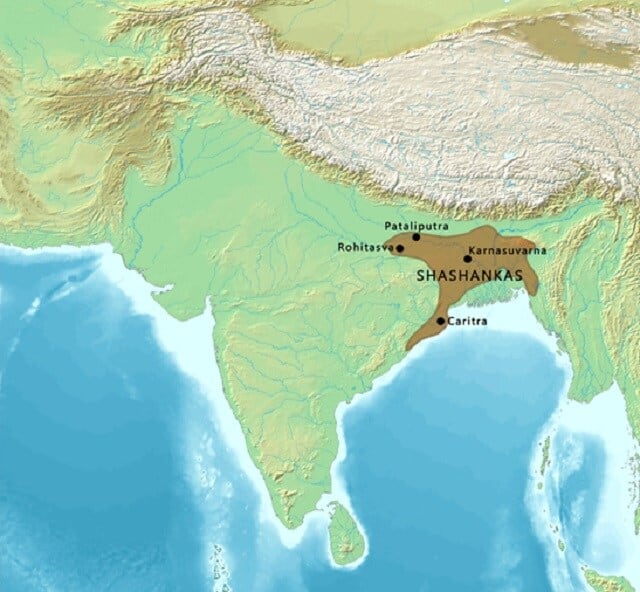 Map of the Shashanka’s empire or the Gauda kingdom, circa 600 CE[/caption] [caption id=“attachment_10561721” align=“alignnone” width=“640”]
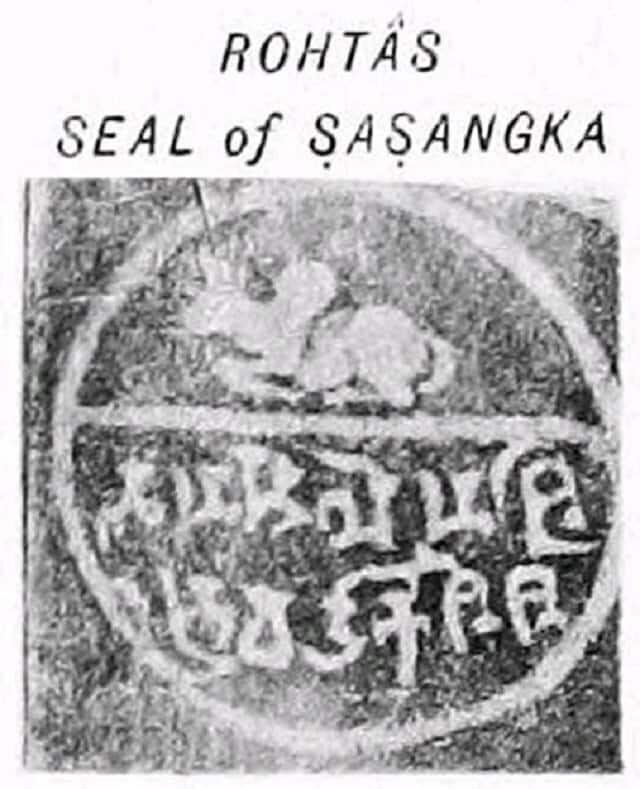 Royal seal of the Sasanka. The seal was found by Sir Alexander Cunningham in 1895. It is a short inscription which mentions ‘Mahasamanta Shashanka-dava’, whom John Faithfull Fleet identified with the Gauda king Shashanka.[/caption] [caption id=“attachment_10561731” align=“alignnone” width=“640”]
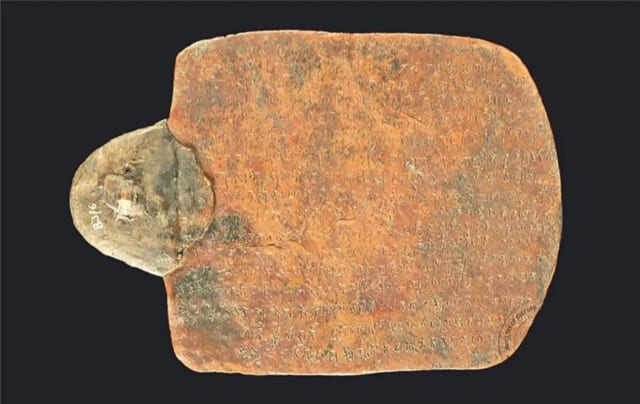 As per Adnan Amin, ‘The Egra copper plate inscription with a seal enumerates an account of a land grant at the time of Saasanka. It contains 20 lines on the obverse and 17 lines on the reverse. The copper plate, dated to circa 7th century CE, is supposed to have been recovered from Egra, East Medinipur of West Bengal.[/caption] So where did this theory of Akbar starting the Bengali calendar come from? The theory of Akbar starting the Bengali calendar started in 1966 when in Bangladesh (then East Pakistan) a Panjika Sanskar Committee (an Almanac Reforms Committee), which was headed by Dr Muhammad Shahidullah, recommended this theory, with the sole purpose of Islamising the Bengal calendar, with the backing of the Pakistan state. This committee also brought in some changes in the Hindu Bengali calendar to suit the Islamic narrative, which was then recommended to be made into the national calendar of Bangladesh (this was, however, implemented only after the liberation of Bangladesh). Not surprisingly the same theory can also be traced in the book, The Argumentative Indian, written by Amartya Sen, who had once made repeated mentions of this theory in his various speeches, in order to force it down the minds of the gullible common people. Examining historical background of the Bengali calendar To examine if the Akbar narrative, as was proposed by the Panjika Sanskar Committee, had any standing, it’s necessary to explore the history of Bengal a bit. Long after Raja Sasanka’s rule ended, Bakhtiar Khilji in 1206 CE managed to overthrow Lakshman Sena from his kingdom and subsequently that part of Bengal came under the Delhi Sultanate control that followed the Islamic Hijri lunar calendar. However, the Hijri calendar proved to be a major administrative problem in a Hindu society that was largely dependent on its agricultural economy, and it is here that Akbar comes into the scenario. [caption id=“attachment_10561751” align=“alignnone” width=“640”]
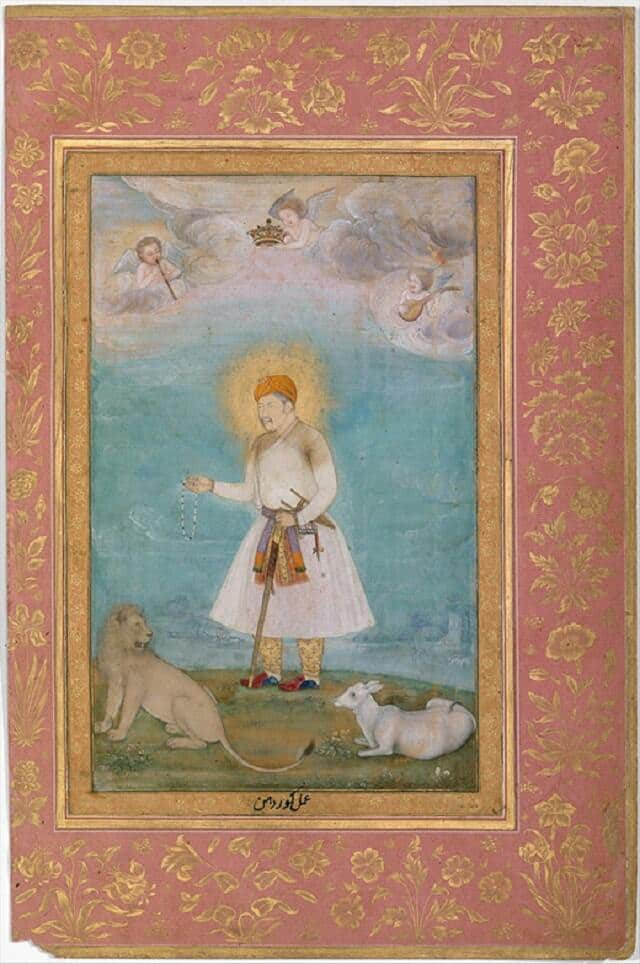 Govardhan. Akbar with Lion and Calf ca. 1630, Met museum[/caption] Agricultural revenue by natural course is associated with crop harvest, and the tax is generally collected at the end of the harvest season. Seasons, in an Indic society, is firmly tied to the sun’s position as defined by solar months that starts with the entry of the sun into a series of zodiac signs every month, thus connecting the three (solar month, seasons, sun’s position) in a fixed manner. On the other hand, the Islamic Hijri calendar is based on lunar months, which had no association with seasons or harvest, and the start of each year changed over the years varying from summer, to monsoon, to even winter. So land revenue could not be based on the uncertainty of the Islamic lunar calendar, where the tax collector would arrive anytime, even when the crops had just been planted and the farmer with no money to pay his taxes, leading to a great deal of unpleasantness. It is said that Akbar soon realised that for agricultural tax collection, the Hindu calendars were better suited, because the New Year started on a fixed date. Hence, it is claimed that he decided to adopt the solar calendar, and fixed it on the year of his coronation in 1556 CE, which was 29 years earlier than he had actually started his solar calendar named Tarikh-i-Ilahi. The year of his coronation was 1556 CE, which as per the Islamic calendar was 963 Hijri, the Islamic lunar calendar. The people who are looking to Islamise the Bengali Bongabdo calendar claim that in 1584 CE Akbar seeing the benefits of solar calendar in collecting farm tax decided to start the Bengali era with year 963 CE that was matched with his coronation year 1556 CE. Sounds rather illogical, doesn’t it? But wait, there is more to this fake narrative. If we go by this theory that in 1584 CE Akbar decided to start a calendar that was pegged on his coronation year that was 29 years ago in 1556 CE, then by that calculation the Bengali calendar started functioning from 963+29, or the 991th year. Since Hijri is a lunar calendar, this will have to be advanced by a year, so that 1584 CE would be 991 +1 or 992 Islamic Era. So as per the claims of this group, 991 Bangabdo Era and 29 Tarikh-i-Ilahi Era both started at this time (1584 CE or 992 IE). The only logic behind this incredible narrative is that possibly Akbar did not wish to face the embarrassment of having to replace the highly unstable Hijri lunar calendar with the stable Hindu solar calendar. So when he started the Bangabda calendar in 1556 CE, he pegged it on the year of his coronation, and instead of making it as Bengal Era year 1 Bongabdo, he put it as 963 Bangabda, to keep the façade of a continuing Islamic calendar. However, for some curious reason he kept the administrative year matched with the traditional Bengali solar year for maintaining the seasonal fixed dates. A complex and rather absurd method to be chosen by Akbar to start Bangabda, if he had indeed adopted this method, which is very unlikely, as Akbar’s “Ain I Akbari” while mentioning many other calendars does not mention the Bengali Bangabda calendar. Sunil Kumar Bandhopadhyay’s mathematical calculations that give a simple and logical explanation for the start of the Bangabdo era, which places it in 594 CE coinciding with the coronation of Raja Shashanka can be taken as the first year of Bangabdo, or 1 BE. It does not have the illogical narrative of force numbering 963 Bangabda Era to maintain a false equivalence with 963 Islamic Era year during the year of Akbar’s coronation. Also one must note here that the Bengali new year is celebrated on 15 April (West Bengal) when the sun moves into the Aries or Mesha zodiac sign, clearly indicating that the Bangabda Era has its roots in the Hindu tradition of solar calendar and goes back to antiquity, much earlier than the lunar Hijri calendar had even started. To back this, there are two Shiva temples in the Bankura district, one at the Dihargram village and the other at the Sonatapan village, which are more than thousand years old and have the years recorded in Bangabda. Thus, clearly these two temples support the view that the Bangabda calendar was in existence more than 1,000 years back, much earlier than Akbar’s rule came into existence. [caption id=“attachment_10561761” align=“alignnone” width=“640”]
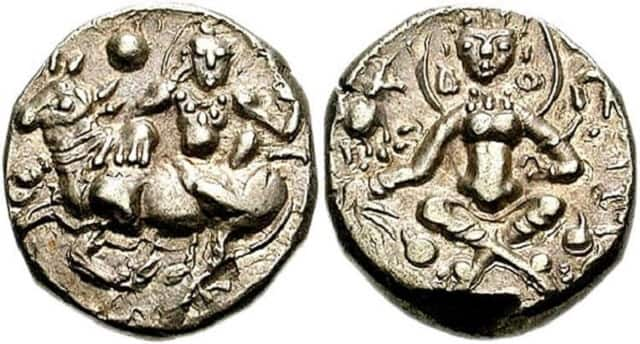 This coin was issued by the Gauda king Shashanka (c. late 6th century). It shows Lord Shiva seated on his bull on one side and the goddess of prosperity, Sri Lakshmi, on the other. Coins of King Shashanka, Gold metal, circa 600-630 AD. COURTESY: MUSEUM OF INDIA[/caption] [caption id=“attachment_10561781” align=“alignnone” width=“640”]
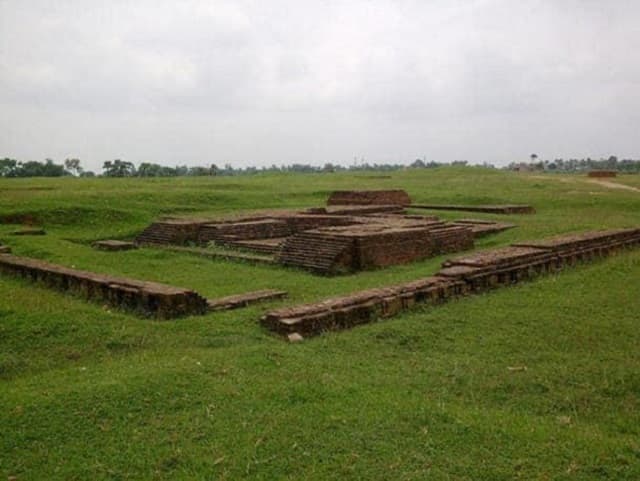 Remains of King Sasanka’s ancient capital Karnasubarna.[/caption] Many regions in South-East Asia (such as Bali) also celebrate their New Year on the first day of Boisakh (14-15 April). Surely, Akbar did not start the New Year for these areas too! The author is a well-known travel and heritage writer. Views expressed are personal. Read all the Latest News , Trending News , Cricket News , Bollywood News , India News and Entertainment News here. Follow us on
Facebook,
Twitter and
Instagram.


)

)
)
)
)
)
)
)
)



